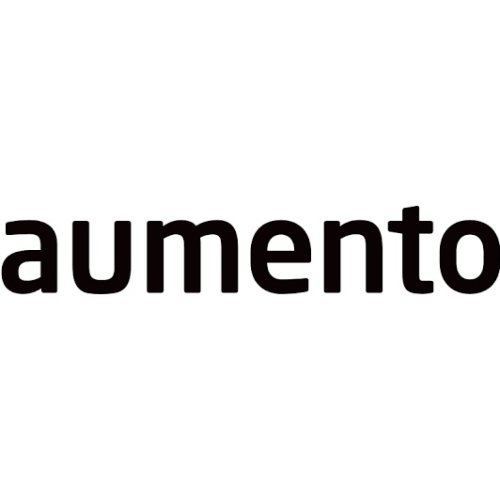Best Hiring & Firing Lawyers in Copenhagen
Share your needs with us, get contacted by law firms.
Free. Takes 2 min.
List of the best lawyers in Copenhagen, Denmark
About Hiring & Firing Law in Copenhagen, Denmark
The process of hiring and firing in Copenhagen, Denmark, is governed by a combination of labor law, union agreements, and company policies. Denmark is known for its robust social welfare systems and strong worker protections. This includes clear regulations to ensure fair treatment in hiring practices and substantial protections against wrongful termination. Employers must adhere to national labor laws as well as specific regulations that may be stipulated in collective bargaining agreements, which are common in Denmark.
Why You May Need a Lawyer
Engaging with hiring and firing laws can be complex, especially for businesses unfamiliar with Danish labor regulations. Common situations where legal assistance may be required include:
- Understanding labor contracts and ensuring compliance with Danish law.
- Navigating disputes over employment terms or working conditions.
- Addressing issues of wrongful termination or filing termination notices.
- Dealing with claims of discrimination in hiring or firing practices.
- Navigating the complexities of collective bargaining agreements.
Legal experts can provide crucial guidance on these matters, helping both employers and employees navigate the intricate legal landscape efficiently and confidentially.
Local Laws Overview
There are several key aspects of local laws to consider with respect to Hiring & Firing in Copenhagen, Denmark:
- The Danish Contracts Act: Governs business agreements, including employment contracts, and ensures that terms are clear and mutually agreed upon.
- The Danish Salaried Employees Act (Funktionærloven): Offers protections for white-collar workers, including notice periods, compensation terms, and criteria for fair dismissal.
- Anti-discrimination Legislation: Employers must not discriminate based on gender, race, religion, age, disability, sexual orientation, or political beliefs throughout the hiring and firing process.
- Collective Agreements: Many industries in Denmark are regulated by collective agreements that outline specific hiring, employment, and termination conditions.
- Termination Notices: Employers must comply with statutory notice periods based on employee seniority, as well as negotiate severance pay when necessary.
Frequently Asked Questions
What is the notice period required for termination?
The notice period in Denmark depends on the employee's length of service, ranging from one month for shorter tenures up to six months for those employed over nine years.
Can an employee be dismissed without notice?
Immediate dismissal is possible under specific circumstances, such as significant misconduct, but these instances require substantial evidence and are subject to legal scrutiny.
Are trial periods allowed in employment contracts?
Yes, trial periods of up to three months are permissible, during which special termination rules apply, often allowing for shorter notice periods.
What protections exist against wrongful termination?
Employees are protected against wrongful termination through collective agreements and laws requiring just cause for dismissal. Unfair dismissals can lead to reinstatement or compensation.
How are disputes regarding hiring and firing typically resolved?
Disputes can often be resolved through negotiation or mediation. However, if these fail, the Danish Labor Court or civil courts may be involved for legal resolution.
Do foreign workers have the same rights under Danish labor law?
Yes, foreign workers are entitled to the same protections and rights under Danish labor law as local employees, including during hiring and firing processes.
How does the Danish model impact collective bargaining?
The Danish labor market is known for the "flexicurity" model, which blends flexibility in hiring and firing with robust social security for employees, often facilitated through collective bargaining.
Is severance pay mandatory?
Severance pay is not generally mandatory unless stipulated by collective agreements or specific employment contracts; however, some agreements may require it based on seniority and circumstances of dismissal.
What constitutes discrimination in the hiring process?
Discrimination can occur in hiring if decisions are made based on non-job-related characteristics such as gender, race, age, or other protected attributes.
Where can employees or employers find further guidance on hiring and firing?
Both employees and employers can seek advice from labor unions, legal professionals specializing in employment law, or governmental advice centers.
Additional Resources
- The Danish Labor Court: An authoritative body for resolving labor-related disputes.
- Local Unions: Offer advice and representation for workers, often involved in collective bargaining.
- Legal Aid Services: Provide assistance for those unable to afford private legal counsel.
- The Confederation of Danish Employers: Offers resources and guidance for businesses on employment law compliance.
- The Ministry of Employment: Provides official information on employment laws and regulations.
Next Steps
If you require legal assistance in hiring and firing matters, consider the following actions:
- Consult a lawyer specializing in Danish employment law to discuss your specific situation.
- Engage with local unions if you are an employee seeking assistance or representation.
- For employers, ensure compliance by regularly reviewing company policies with legal counsel.
- Gather all pertinent documents and facts related to your case to facilitate effective legal consultation.
- Consider alternative dispute resolution mechanisms, such as arbitration or mediation, to expedite resolution.
These steps can help ensure a balanced and informed approach to resolving hiring and firing issues in Copenhagen, Denmark.
Lawzana helps you find the best lawyers and law firms in Copenhagen through a curated and pre-screened list of qualified legal professionals. Our platform offers rankings and detailed profiles of attorneys and law firms, allowing you to compare based on practice areas, including Hiring & Firing, experience, and client feedback.
Each profile includes a description of the firm's areas of practice, client reviews, team members and partners, year of establishment, spoken languages, office locations, contact information, social media presence, and any published articles or resources. Most firms on our platform speak English and are experienced in both local and international legal matters.
Get a quote from top-rated law firms in Copenhagen, Denmark — quickly, securely, and without unnecessary hassle.
Disclaimer:
The information provided on this page is for general informational purposes only and does not constitute legal advice. While we strive to ensure the accuracy and relevance of the content, legal information may change over time, and interpretations of the law can vary. You should always consult with a qualified legal professional for advice specific to your situation.
We disclaim all liability for actions taken or not taken based on the content of this page. If you believe any information is incorrect or outdated, please contact us, and we will review and update it where appropriate.
















